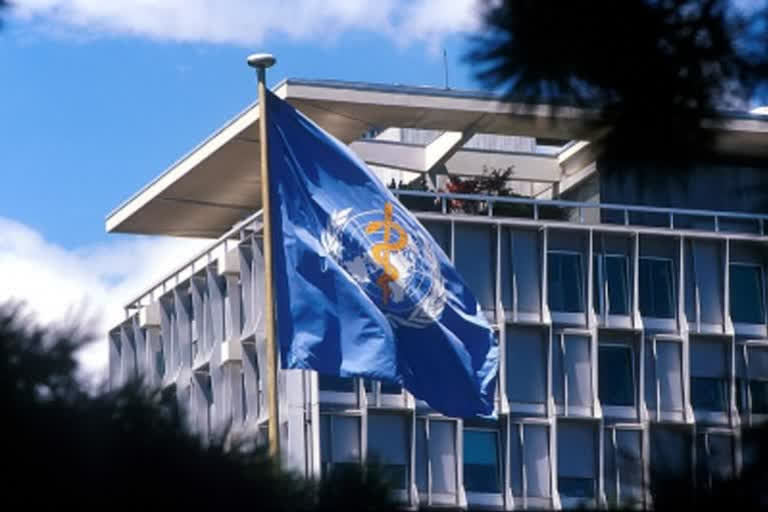New Delhi: The WHO Global Centre for Traditional Medicine, set to come up in Gujarat, aims at improving the quality and safety of traditional medicinal practices by developing a cohesive approach to healthcare, said the world body's Regional Director Dr Poonam Khetrapal Singh. The objective is also to develop a mechanism that allows access to such traditional medicinal practices and protects such knowledge, she said. Prime Minister Narendra Modi along with World Health Organization (WHO) Director-General Dr Tedros Ghebreyesus will perform the ground-breaking ceremony of the facility in Jamnagar on April 19.
It would be the first global outpost centre for traditional medicine and define the issues that countries face in regulating, integrating and positioning traditional medicine. Asked why the need for establishing the WHO Global Centre for Traditional Medicine (GCTM) has been felt now, Dr Singh told PTI that nearly 80 per cent of people in 170 of 194 WHO member countries use traditional medicines and indigenous therapies. For many, traditional medicines are the first port of call for treatment, said the regional director of WHO South-East Asia Region.
"Many of their governments have requested WHO's support in creating a body of reliable evidence and data on traditional medicines practices and products," she said. According to her, the Covid pandemic has further impacted health systems in the world and all countries need to mobilise all available resources to recover, fill gaps in health coverage and accelerate progress toward health goals. "Consumer expectations for healthcare are rising while costs are soaring. Therefore, integrating traditional medicine into the public healthcare delivery system becomes an obvious and pressing need.
"Although traditional medicines have been around for millennia, they lack robust evidence, data and a standard framework, preventing their integration into mainstream healthcare delivery system. As a result, millions of accredited traditional medicine workers, facilities, expenditures and products are still not fully accounted for," Dr Singh said. The GCTM, with its global reach, will be a game-changer by focusing on four strategic areas of work. These are evidence and learning; data and analytics; sustainability and equity; and innovation and technology, she stated.
"It will help harness the power of traditional medicine to advance the Sustainable Development Goal 3 target of ensuring the health and promoting wellbeing for all at all ages." Asked what other areas will it contribute to, Dr Singh said traditional medicine is a part of the growing trillion-dollar global health, wellness, beauty and pharmaceutical industries. Many countries have well-established systems of traditional medicine. Supporting the member states in developing a safe, effective and organised traditional medicine will enable the medical system to tap into and fully realise its potential and attract people from other countries who seek such care, she said.
Also read: India questions WHO's methodology to estimate COVID-19 mortalities
"Traditional medicines also represent a vibrant and expanding part of healthcare. There has been rapid modernisation in the ways traditional medicine is being studied. "Artificial intelligence is now used to map evidence and trends in traditional medicine and to screen natural products for pharmacokinetic properties," Dr Singh told the media. This has opened up new possibilities for learning, research, application and delivery of traditional medicines and therapies, she noted. "Over 40 per cent of pharmaceuticals are tracing their origins to traditional medicine. One of the key areas of focus for the GCTM is equity and sustainability.
"The centre will, with a developed standard common tool, assist in preserving and protecting the sources of traditional knowledge and nurture the source of traditional medicines with respect for local heritage, resources and rights as its guiding principle," Dr Singh said. She stressed that traditional medicine can also help address the growing burden of non-communicable diseases and mental illnesses through its integrated and complementary use with the allopathic system. Dr Singh told the media that the biggest challenges facing the integration of traditional medicines into the mainstream healthcare delivery system are ensuring its safety, and efficacy and standardizing and developing traditional medicines as evidence-based medicine.
"For this, we need evidence and data to inform on policies and standards regulatory frameworks to ensure safe, cost-effective, and equitable use. The healthcare system has also not been able to fully integrate millions of traditional medicine workers, accredited courses, health facilities and expenditures preventing us from fully realizing the potential of traditional medicines," she said. Dr Singh stressed the need for developing a cohesive and integrative approach that allows governments, healthcare practitioners and consumers to access traditional medicine services in a safe, cost-efficient and effective manner. She also emphasised developing a mechanism to preserve and protect traditional medical knowledge, to guarantee and improve the quality and safety of traditional medicine and practices. "These are what the GCTM will contribute towards," Dr Singh said.
PTI



